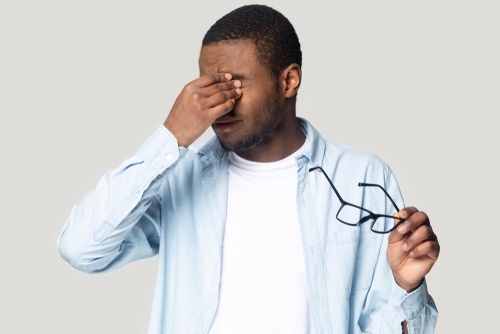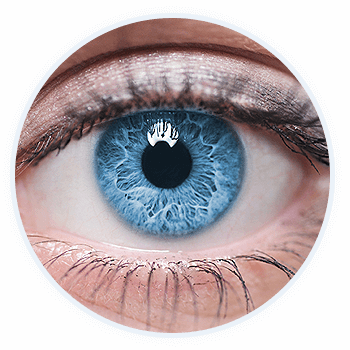
Caring for your eyes might not be at the top of your mind during winter, especially during the holidays. However, cold weather brings its fair share of eye health problems, including dry eyes.
Some symptoms of dry eyes include:
- Burning sensation
- Eye pain
- Blurred vision
- Eye fatigue
- Increased sensitivity to light
- Eye redness
- Foreign body sensation in the eyes
- Difficulty driving at night
These symptoms can present severe problems in your daily life. At best, they are uncomfortable.
At worst, they could threaten your eyesight and put you in dangerous situations. Keep reading to learn about five ways to prevent dry eyes and keep your eyes healthy this winter.
1. Stay Hydrated
You may notice that you feel less thirsty during colder months. However, even slight dehydration can cause dry eyes symptoms.
For this reason, make sure you’re adequately hydrated to fight dry eyes this winter. One way to increase your intake of fluids is by eating soup and water-rich fruits and vegetables. Plus, drink plenty of water.
2. Use a Humidifier
The air gets especially dry during winter, which causes humidity to go down, inside and outside. The air inside becomes more dehydrated because of heaters, furnaces, and fireplaces.
Unfortunately, low humidity can irritate your eyes, particularly if you have dry eyes. Using a humidifier at home and in the office helps increase humidity indoors. More moisture in the air helps your eyes stay well hydrated during the winter!
3. Avoid Rubbing Your Eyes
If your eyes start to feel dry and itchy, don’t rub them. Rubbing them may feel good, but it will make your eye irritation worse in the long run. It can even result in infection if your hands are dirty.
Use artificial tears instead to aid your dry eyes and reduce irritation. Your eye doctor can recommend drops specifically suited for your eyes.
4. Take Frequent Breaks from Digital Screens
During winter, you may prefer to stay warm indoors and occupy yourself with your digital devices. This means your eyes remain glued to your phone, tablet, computer, or laptop for hours.
Staring at digital screens for extended periods plus watching TV can lead to headaches, eye fatigue, and other dry eye symptoms. The best thing you can do for your eyes is take frequent breaks from your screens.
Every twenty minutes, look at something twenty feet or more away from you for at least twenty seconds. And remember to blink often. Blinking lubricates your eyes, decreasing discomfort and keeping them healthy.
5. Wear Polarized Sunglasses
Do you have some exciting outdoor activities lined up this winter season? Whether it’s ice-skating, skiing, or an afternoon stroll, you should always wear quality sunglasses.
Why? Exposure to the sun’s UV rays that reflect off snow or ice can damage your eyes and even cause keratitis. Keratitis is inflammation of the cornea, and it makes your eyes red, sore, and sensitive to light.
Excessive exposure to UV light can also contribute to the formation of cataracts. One way to prevent these problems is to wear polarized sunglasses that block UVA and UVB rays.
If you are still experiencing dry eye symptoms after trying these five strategies, you may need additional treatment at our Dry Eye Clinic.
Schedule an appointment at VisionPoint Eye Center in Bloomington, IL, and your eye doctor will help keep your eyes healthy during the winter and all year long!









